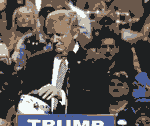|
https://x.com/DeItaone/status/1754520469317861834?s=20 Huge upside miss this morning on the inflation data. Especially non-manufacturing prices, which was a gigantic miss. The market is displeased today. The administration's celebrating and backslapping over the last few weeks appears to have been premature.
|
|
|
|

|
| # ? Jun 1, 2024 13:03 |
|
FistEnergy posted:https://x.com/DeItaone/status/1754520469317861834?s=20 Can you explain more in-depth?
|
|
|
|
I Googled:quote:KEY TAKEAWAYS And quote:The Prices subindex of the ISM PMI/NMI measures the cost of inputs businesses pay for production, including prices of raw materials. Rising costs for raw materials are transferred from the producer to the customer, resulting in inflation. So the Prices subindex of PMI and NMI is a leading index for inflation. So: economic growth and higher inflation Rust Martialis fucked around with this message at 16:59 on Feb 5, 2024 |
|
|
|
The stats are all showing higher-than-expected increases in prices and wages and overall economic activity. Most people have been wanting inflation data to be lower so the Federal Reserve becomes more likely to cut interest rates, but it looks like that is unlikely. It is up for some debate how much of these increases are going to affect prices of everyday goods for normal people, but it is a sign (to some people) that the one tool to fight inflation that isn't held hostage by the GOP House and/or a general lack of legislative imagination in our country has not been used enough. I think that using central bank interest rates to fight inflation or drive economic growth is like using a jackhammer for every situation, regardless of whether you only a small hammer or a hand drill or just a different tool altogether, but this is where the country is right now. EDIT: a lot of "fixing" inflation is going to have to come from actually making more stuff so it's less scarce and price pressure trends downward. You don't fix that by twiddling with interest rates because making debt too expensive to hold just cuts the fuel for a lot of business activity. In fact, you probably screw up what is supposed to happen in that ideal dream world of economics, which is more people make more stuff to respond to the demand. Eric Cantonese fucked around with this message at 16:57 on Feb 5, 2024 |
|
|
|
In "social media platforms can't just NOT continue to gently caress up" https://www.cnn.com/2024/02/05/tech/manipulated-biden-video-meta/index.html There's a video of Joe Biden placing an "I Voted" sticker on his adult grandchild's chest. It's been edited to suggest he's repeatedly touching her inappropriately. BUT! Meta says the video can stay up because it doesn't fulfill the needs for "manipulated media" under their own rules (a policy they themselves now say is "incoherent and needs to change"). See, in Meta's rules, the video MUST use AI to be manipulated and MUST show the person saying something that they didn't say. It absolutely has to check both of those boxes or it doesn't get removed. Since the video in question quasi-happened (he placed the sticker) and doesn't include changed audio by an AI...well then it gets to stay! Jesus Christ.
|
|
|
|
FistEnergy posted:https://x.com/DeItaone/status/1754520469317861834?s=20 One indicator based on a limited survey is not a calamity. Economic signals remain mixed, at worst.
|
|
|
|
haveblue posted:I thought it was always the plan to use a different sequence each time? They don’t want anyone to be First In The Nation permanently and forever (other than New Hampshire, until they change their state laws) They said they are going to re-vote on the order each cycle, but that doesn't mean they necessarily are going to cycle out every state each primary season. The article is just noting that the policy means they will be reviewing the order again in 2028 and the current order might not mean anything because 2024 is expected to be mostly uncontested and 2028 is an open primary, so the order for 2028 is the more significant order in practical terms.
|
|
|
|
BonoMan posted:In "social media platforms can't just NOT continue to gently caress up" What kind of idiot makes it all the way to AI being able to manipulate videos, and doesn't remember that people can do it by digital hand?
|
|
|
|
Gyges posted:What kind of idiot makes it all the way to AI being able to manipulate videos, and doesn't remember that people can do it by digital hand? The ones that don't want it taken down because it's driving engagement, of course!
|
|
|
|
Gyges posted:What kind of idiot makes it all the way to AI being able to manipulate videos, and doesn't remember that people can do it by digital hand? Nah, the AI took it all away. That's why they have all those extra fingers.
|
|
|
|
Main Paineframe posted:Low-wage work fundamentally sucks to begin with. Not only is the pay poor, but the working conditions are often terrible. People generally work them because they don't have a better choice. So we don't really need a fancy explanation for why people don't want to work low-wage jobs - we need to explain why they're able to avoid working low-wage jobs. I've heard a big part of it is the miserable, costumer facing low level managers finding better jobs. Think about the life of a supermarket department manager in 2017. That person needs to know way more about the store, take on way more hours, and deal with way more karens in return for making a whole $3/hr more than the people under them. And usually they don't even get overtime pay because they are a manager. But since the department hasn't imploded under them, they clearly have the skills do something more. A lot of the wage gain post pandemic is the Subway assistant manager type realizing they don't have to take this poo poo anymore, and finding another job in a completely different industry that sucks less and pays more.
|
|
|
|
I am not an econ expert and am in fact a moron but. It seem like the high interest rates are used as a tool to encourage people to save money or borrow less, thus slowing velocity and reducing prices. But it's hard to see how people are supposed to do that when everyone's money is going towards rent and food which cost a fuckton now. Is that too reductive?
|
|
|
|
metachronos posted:I am not an econ expert and am in fact a moron but. It seem like the high interest rates are used as a tool to encourage people to save money or borrow less, thus slowing velocity and reducing prices. But it's hard to see how people are supposed to do that when everyone's money is going towards rent and food which cost a fuckton now. Also, (in theory) it should force businesses to make safer bets as there is less free money floating around.
|
|
|
|
metachronos posted:I am not an econ expert and am in fact a moron but. It seem like the high interest rates are used as a tool to encourage people to save money or borrow less, thus slowing velocity and reducing prices. But it's hard to see how people are supposed to do that when everyone's money is going towards rent and food which cost a fuckton now. Also interest rates are only "high" now in a relatively recent sense. They're supposed to average high enough to allow the Fed to drop them in response to economic slowdowns or recessions to juice the economy. We just ended up spending years with emergency-mode zero pr near-zero interest rates even when there was no emergency, leading to an economy that is no longer accustomed to accounting for important safety margins.
|
|
|
|
The Fed interest rate specifically is meant to influence business investment, not consumer spending. Consumer spending is incredibly robust towards outside changes because people will generally go into debt to maintain their lifestyle immediately and hope to ride it out (lifetime consumption theory) rather than just spend some flat proportion of their income. The chain of events is basically higher interest rates -> higher borrowing costs -> lower investment -> lower demand. Now, there's a knock-on effect in that a short term reduction in business investment means a longer term reduction in supply, but this generally is less than the lower demand (the opportunities are still there, they're just pursued slower or at more convenient rates). Some of the hullabaloo is about how demand keeps increasing or staying steady despite high interest rates which just drives up prices more, especially since growth of supply will be slower from reduced investment. Now stepping outside conventional wisdom, my belief is the problem is that most of the inflation is from supply side shocks and monetary policy will do little to reduce that. It will, and is, going away on its own, albeit there's some sticky inflation (one of the biggest contributors to inflation is expectations of inflation since contracts and supply agreements are signed with inflation built in) on top of a hot labor market and some price gouging.
|
|
|
|
the economy is (in)significantly small, next
|
|
|
|
|
metachronos posted:I am not an econ expert and am in fact a moron but. It seem like the high interest rates are used as a tool to encourage people to save money or borrow less, thus slowing velocity and reducing prices. But it's hard to see how people are supposed to do that when everyone's money is going towards rent and food which cost a fuckton now. Morrow posted:The Fed interest rate specifically is meant to influence business investment, not consumer spending. Consumer spending is incredibly robust towards outside changes because people will generally go into debt to maintain their lifestyle immediately and hope to ride it out (lifetime consumption theory) rather than just spend some flat proportion of their income. As for inflation, people think of it as this exogenous force but it’s really the result of individual actors along a supply chain choosing to raise prices. There was a supply shock during Covid, yes, but that’s pretty much over now. However, like with baggage fees that were supposed to be a temporary response to increased fuel prices in 2008, companies have realized that they can jack up prices and blame inflation without significantly decreasing consumer demand.
|
|
|
|
Gyges posted:What kind of idiot makes it all the way to AI being able to manipulate videos, and doesn't remember that people can do it by digital hand? Wait til you see what kind of legislation comes out of the complaints about AI-manipulated porn images
|
|
|
|
Finally, some policy specifics out of this election cycle that is shockingly light on policy specifics. Unfortunately, it is pretty horrible policy. Trump has released an economic plan that combines steep tariffs with large corporate tax cuts and mass deportations. Big business allies who are usually not in favor of mass deportations or huge tariffs have caustiously signed on to the plan because Trump is promising massive corporate and high-income tax cuts to make up the difference. Even according to economists from Trump's campaign, the plan will: - Raise the incomes of U.S. steelworkers by about 11%, but increase unemployment among American factory workers. - Increase overall inflation by about 1% per year, up to a 3.8% increase to the topline inflation figure over 5 years. - Increase the costs of goods from China by at least 60% for American consumers. - Increase the cost to consumers for all goods made outside of America by at least 10%. - Raise pork and chicken production costs by at least 37% and cause shortages. - Unspecified, but large spikes in the prices of fresh fruits, construction, and hotels. - Reduce the corporate tax rate to 15%, remove the new corporate minimum tax rate, cut taxes for people with incomes over $400,000, eliminate the new stock buy-back tax, and make the 2017 Trump tax cuts permanent. This would be approximately $6 trillion in tax cuts that would almost entirely go to corporations and the top 20% of households in the U.S. - Attempt to deport roughly 13 million people in America by targeting people who are here illegally, revoking temporary protected status for others, and conducting a nationwide review of immigrants who have overstayed their visa to search for them. - Raise prices and impact employment an unknown amount depending on the reaction of other countries to the trade war and tariffs. https://twitter.com/JStein_WaPo/status/1754892023860011122 https://www.washingtonpost.com/business/2024/01/12/trump-tax-cuts-2024/ quote:Donald Trump is vowing sweeping changes to the nation’s economy that threaten to reignite inflation — even as the former president blames President Biden for higher prices and says he’ll bring the problem under control. Leon Trotsky 2012 fucked around with this message at 17:31 on Feb 6, 2024 |
|
|
|
Leon Trotsky 2012 posted:Finally, some policy specifics out of this election cycle that is shockingly light on policy specifics. Unfortunately, it is pretty horrible policy. And yet somehow the citizens of the US and their goldfish memory think Trump/Republicans are better on the economy.
|
|
|
|
The National Highway Transportation Safety Administration has a new study out showing that nearly all automobile deaths in the United States are preventable. The single biggest contributors to deaths (of car passengers or drivers and not counting pedestrians) are: 1) People not wearing seatbelts. 2) People speeding far in excess of the posted limits. 3) People driving while distracted by a cell phone or intoxicated. - 91.6% of Americans use a seat belt every time they drive. - In 2022, 50% of all automobile fatalities where the driver or passenger died came from the 8.4% who were not wearing a seatbelt. - Buckling up is actually more effective in preventing deaths while in a light SUV or truck than in a sedan. quote:Overview https://www.nhtsa.gov/vehicle-safety/seat-belts
|
|
|
|
Angry_Ed posted:And yet somehow the citizens of the US and their goldfish memory think Trump/Republicans are better on the economy. If you are in the top 20% of incomes, earn most of your money from corporate profits or business passthrough income, are an American steelworker who is not one of the few that will be laid off due to trade war policies, and aren't an illegal immigrant then these will probably be "better on the economy" for you. It seems unlikely that those situations apply to most of the roughly 55% of Americans who think that these policies will be better for lowering inflation, though. Leon Trotsky 2012 fucked around with this message at 18:14 on Feb 6, 2024 |
|
|
|
Leon Trotsky 2012 posted:If you are in the top 20% of incomes, earn most of your money from corporate profits or business passthrough income, are an American steelworker who is not one of the few that will be laid off due to trade way policies, and aren't an illegal immigrant then these will probably be "better on the economy" for you. Also you live like a monk and will be unaffected by price shocks from the trade war
|
|
|
|
Leon Trotsky 2012 posted:If you are in the top 20% of incomes, earn most of your money from corporate profits or business passthrough income, are an American steelworker who is not one of the few that will be laid off due to trade way policies, and aren't an illegal immigrant then these will probably be "better on the economy" for you. Alternatively; Republican voters know and/or don't care if it makes them worse off, they're voting to "stick it to them" and prioritize hurting others over helping themselves.
|
|
|
|
Leon Trotsky 2012 posted:The National Highway Transportation Safety Administration has a new study out showing that nearly all automobile deaths in the United States are preventable. I know that it's ultimately a generational thing--I grew up with the Importance of Seatbelts being repeatedly hammered home in school, I don't think about buckling the seatbelt, it's pure muscle memory--but it's still wild to me that there's that many people who don't wear them. I feel less comfortable in a car without one, the snugness is nice.
|
|
|
bird food bathtub posted:Alternatively; Republican voters know and/or don't care if it makes them worse off, they're voting to "stick it to them" and prioritize hurting others over helping themselves. Republican voters don't even perceive of politics in terms of policy at all. It's team allegiances, emotional loyalty, and totemic causes; the (economic) weather turned bad because the gods hate democrats and /or we haven't done enough yet to purge democrats.
|
|
|
|
|
Angry_Ed posted:And yet somehow the citizens of the US and their goldfish memory think Trump/Republicans are better on the economy. Decades of propaganda about exactly that works, it turns out. It's infuriating.
|
|
|
|
Xand_Man posted:Also you live like a monk and will be unaffected by price shocks from the trade war If you're in one of those categories, then $6 trillion in tax cuts will do a lot to smooth out a roughly 13.8% increase in prices. That is about $87,000 per year less in taxes for the top 1% vs. a roughly $47 higher average grocery bill. Also, according to the Trump campaign economists, deregulation, unleashing American energy production, and the corporate tax cuts will supercharge the economy and raise incomes to combat that price increase. So, it is slightly unfair to say that those policies will result in a 13.8% real income decrease for the average person since there will likely be a non-zero amount they "get back" in tax cuts or economic growth. Although, most of the tax cuts for lower-income households come from making the existing Trump tax cuts permanent, so that isn't actually a net change from right now and is just a net change against a hypothetical 2026 where the tax rates go up. Still, it is likely going to result in a real income decrease for most people unless the supercharged economy from those policies performs above all expectations and estimates to an astonishing degree. It is also going to depend on your spending habits and what industry you work in as well. It isn't going to be totally evenly distributed in impact. The Lord of Hats posted:I know that it's ultimately a generational thing--I grew up with the Importance of Seatbelts being repeatedly hammered home in school, I don't think about buckling the seatbelt, it's pure muscle memory--but it's still wild to me that there's that many people who don't wear them. I feel less comfortable in a car without one, the snugness is nice. 92 out of 100 people wearing a seatbelt every time they drive is a remarkably successful public safety campaign. It is still crazy that there are tens of millions of people who don't wear seatbelts in 2024, but 92% compliance is really good. It was only 11% in 1982. Leon Trotsky 2012 fucked around with this message at 18:23 on Feb 6, 2024 |
|
|
|
Hieronymous Alloy posted:Republican voters don't even perceive of politics in terms of policy at all. It's team allegiances, emotional loyalty, and totemic causes; the (economic) weather turned bad because the gods hate democrats and /or we haven't done enough yet to purge democrats. Yeah, fair point. With the descent into internally contradictory fascist rhetoric a lot of them probably do hold these views.
|
|
|
|
Leon Trotsky 2012 posted:92 out of 100 people wearing a seatbelt every time they drive is a remarkably successful public safety campaign. It is still crazy that there are tens of millions of people who don't wear seatbelts in 2024, but 92% compliance is really good. It was only 11% in 1982. The remarkably successful "public safety campaign": DING. DING. DING. DING. DING. DING. DING. DING. DING. DING. DINGDINGDINGDINGDINGDINGDING
|
|
|
bird food bathtub posted:Yeah, fair point. With the descent into internally contradictory fascist rhetoric a lot of them probably do hold these views. Right. This new "policy" is just a complicated version of "purge the brown" where "brown" here means "immigrant." It should not be understood as an actual attempt to achieve economic goals; such would be accepting republican pretense rather than rejecting it.
|
|
|
|
|
Hieronymous Alloy posted:Right. This new "policy" is just a complicated version of "purge the brown" where "brown" here means "immigrant." It should not be understood as an actual attempt to achieve economic goals; such would be accepting republican pretense rather than rejecting it. Very large tax cuts for wealthy individuals and businesses paired with sharp reductions in social spending is basically the oldest and purest form of Republican economic goals.
|
|
|
Leon Trotsky 2012 posted:Very large tax cuts for wealthy individuals and businesses paired with sharp reductions in social spending is basically the oldest and purest form of Republican economic goals. Goals sure but not economic goals in the sense of shaping the economy.They want those things regardless of their impact on the economy, positive or negative.
|
|
|
|
Leon Trotsky 2012 posted:The single biggest contributors to deaths (of car passengers or drivers and not counting pedestrians) This is probably my biggest complaint about the NHTSA: their car safety regulations often ignore pedestrians / bicyclists / people in other cars. Car safety tests are all about how well your car protects you from death, not about how well it prevents death in general, so we get a ridiculous car size arms race. When giant SUVs and pick-ups are rated as "safe", it's because our concept of car safety is "kill the other guy".
|
|
|
|
|
VikingofRock posted:This is probably my biggest complaint about the NHTSA: their car safety regulations often ignore pedestrians / bicyclists / people in other cars. Car safety tests are all about how well your car protects you from death, not about how well it prevents death in general, so we get a ridiculous car size arms race. When giant SUVs and pick-ups are rated as "safe", it's because our concept of car safety is "kill the other guy". What is this, the Netherlands????
|
|
|
|
The median new American car weighs half a tonne more than a European car. That would be worth a lol if it didn't directly mean a whole lot of kids getting their skulls crushed.
|
|
|
|
Leon Trotsky 2012 posted:If you're in one of those categories, then $6 trillion in tax cuts will do a lot to smooth out a roughly 13.8% increase in prices. There's no way prices are going to go down in any appreciable way, when companies are already making continuously increasing profits and then they get another tax cut on top of that. Failed Imagineer posted:The median new American car weighs half a tonne more than a European car. That would be worth a lol if it didn't directly mean a whole lot of kids getting their skulls crushed. That's mostly because Europe doesn't think "douchenozzle truck bro" is a market worth cartering to, thankfully.
|
|
|
|
Failed Imagineer posted:The median new American car weighs half a tonne more than a European car. That would be worth a lol if it didn't directly mean a whole lot of kids getting their skulls crushed. How much of that is due to Americans buying more SUVs? It's not like European cars are much lighter if you compare models like-for-like.
|
|
|
|
VikingofRock posted:This is probably my biggest complaint about the NHTSA: their car safety regulations often ignore pedestrians / bicyclists / people in other cars. Car safety tests are all about how well your car protects you from death, not about how well it prevents death in general, so we get a ridiculous car size arms race. When giant SUVs and pick-ups are rated as "safe", it's because our concept of car safety is "kill the other guy". They have other studies and their annual safety stats include pedestrian deaths. It's just that in a study about seatbelt efficacy, you are by definition not including pedestrians because they have no seatbelts.
|
|
|
|

|
| # ? Jun 1, 2024 13:03 |
|
Angry_Ed posted:There's no way prices are going to go down in any appreciable way, when companies are already making continuously increasing profits and then they get another tax cut on top of that. The theory isn't that tax cuts will cause them to lower prices. It's that the tax cuts and deregulation will supercharge the economy and raise wages, so that 13.8% price increase from tariffs (which are tax increases) will be countered by the growth leading to real income increases for Americans despite higher nominal prices.
|
|
|





































